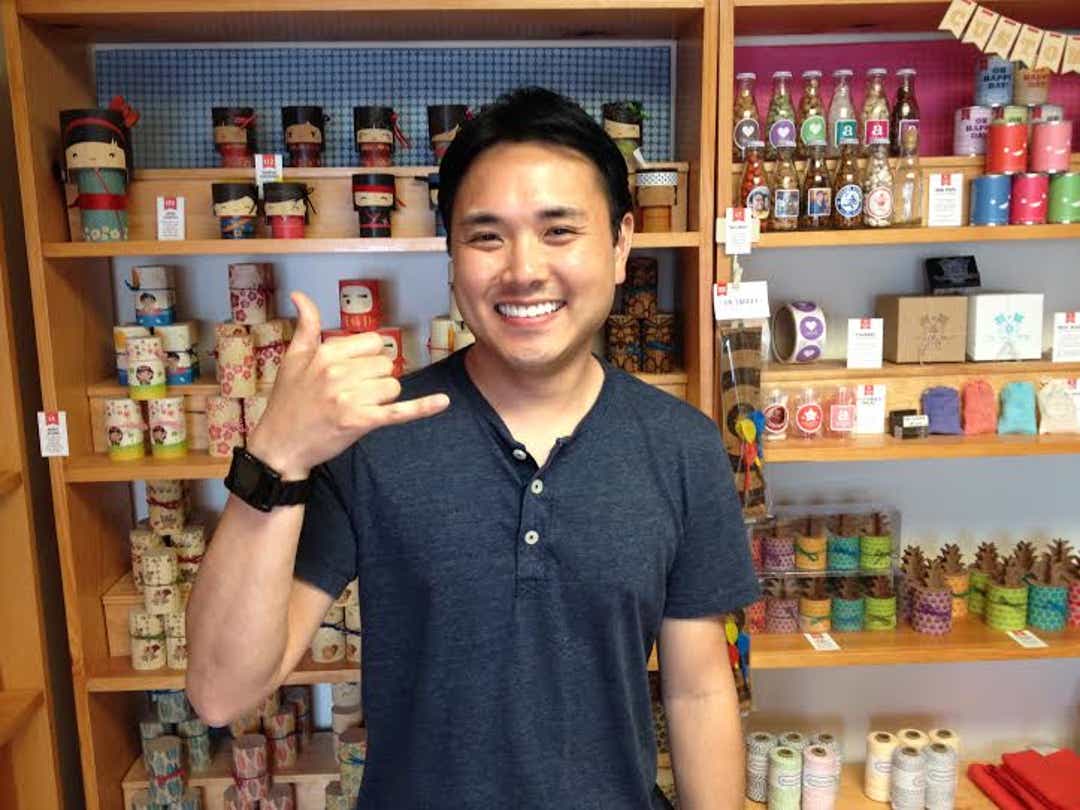For 32 years, Julie Gabot drove more than 80 miles round trip each day to work as a housekeeper at the Sheraton Waikiki, cleaning after tourists who enjoyed the resort's infinity pool and beachfront views.
But after tourism across Hawaii shutdown because of the coronavirus virus, she was let go without severance. Her husband, who worked at the resort for 28 years, was out also out of a job.
Suddenly, Gabot, 62, had two elderly relatives to care for, two adult children to feed at home and no income coming in. For the first time in her life, she's leaning on a local food bank, depending on friends to stand in the hours-long line for groceries and then sharing their bounty with her. When she cooks for her family these days, she's careful not to waste any food.
"Our life is in danger because, of course, we don't know what will happen," she said. "There's no real hope for good things in the future."
Hawaii is facing it's highest unemployment rate ever as strict stay-at-home orders and a virtual shutdown of the state's once mighty tourism industry have left residents reeling, leaning on their savings or unable to pay rent and feed their families. Since March, the state's unemployment rate has soared from 3% to 34%, one of the highest in the nation.
The pain has been widespread, with charities encountering unprecedented requests for food and assistance and small business owners grappling with plummeting profits. The state's struggles to keep up with unemployment claims even prompted some residents to come out and threaten violence against state workers.
Roughly 216,000 of the state's 660,000 workers were employed in jobs supported by tourism in 2019. Airline arrivals to Hawaii have nosedived from more than 30,000 passengers per day to 756. Food service workers, who make up roughly 13% of all employees in the state and earn a median annual income of about $30,000, lost wages as restaurants closed and hotels shuttered.
Hawaii is one of the most expensive places to live in the US
Honolulu City Councilmember Kymberly Pine said she and other lawmakers have for years warned about the state economy's overdependence on tourism.
"It really showed how unprepared our state was for this kind of crisis," she said. "We are going to need to prepare for a lot of people losing their homes, not being able to pay their rentals."
Hawaii has 629 coronavirus cases, but researchers don't expect tourism to rebound until at least 2021, according to data from the University of Hawaii Economic Research Organization.
Meanwhile, Hawaii is one of the most expensive places to live in the U.S. Consumer goods and services, including rent, cost roughly 18% higher than the national average. Because of this, many people in Hawaii live paycheck to paycheck, said Carl Bonham, executive director of the university's economic research organization and an economics professor.
'It was 9/11 and then some'
The skyrocketing number of unemployment claims quickly overwhelmed the state's unemployment website, said Bill Kunstman, spokesman for Hawaii's Department of Labor and Industrial Relations.
"We used 9/11 as a sort of a proxy for what might happen because at that time all air travel had stopped for awhile, too," Kunstman said. “Of course, in hindsight, it was 9/11 and then some.”
More than 226,883 claims have been filed since March 1, but only 104,555 claims were paid.
The department took on 531 volunteers from other state departments and the Legislature to help process the claims, setting everyone up at the Hawaii Convention Center in Honolulu. Next week, Hawaii will start directing people to apply for unemployment only on certain dates depending on the first letter of their last name. A through G names can file on Mondays.
Gabot, the hotel housekeeper, said her fingers hurt from calling the state unemployment line so much before she was finally able to receive benefits. She is still waiting for her federal stimulus check.
"We don't know when this will end so we don't know how safe we are," she said. "We don't know if the tourists are coming back or not."
Employers hit hard by 'perfect storm'
For residents unable to get unemployment benefits, charities have helped fill the gap even as donations haven't increased to meet the demand.
Victor Leonardi, who oversees The Salvation Army's COVID-19 response in Hawaii, said the organization provided 24,000 meals over a recent six-day period. In a typical month, the Salvation Army distributes 2,500 meals a week.
Other non-profits are unsure how long they can help.
Lisa Maruyama, president and CEO of the Hawai‘i Alliance of Nonprofit Organizations, said many non-profits barely have enough funding to get through three months without new funds coming in. And if they can't provide services because of stay-at-home orders, some can't get paid.
She's started to hear about non-profits across the state letting go of employees.
“It’s just a perfect storm," she said. "We don’t have a lot of cash reserves to float employees indefinitely."
Many small business said they have been nearly wiped out by the economic meltdown.
Surf champion Nancy Emerson learned to ride the waves when she was nine-years-old. Years later, she opened up her eponymous surfing schools on the islands of Maui and Oahu. All that disappeared on March 26, with Gov. David Ige's order that anyone entering the state to undergo a 14-day self-quarantine, effectively slamming the door to most tourism.
With no income, Emerson is relying on her savings. She doesn't know if she'll be able to reopen her surfing schools.
"There’s no surf lessons," she said. "No one has work."
People in Hawaii need the ocean, Emerson said, for their health. And she misses her friends.
"I don’t have fear. My mom taught me as a little girl that everything happens for a reason," she said. "I just feel really blessed that I was able to have a business for this long. If I can’t open in Hawaii, I don’t know. It’s an unknown."
In Oahu, Holly Harding and her husband opened O’o Hawaii, a skincare company promoting local ingredients like macadamia nut oil and coffeeberry extract, two years ago with ambitions of big sales with Asian consumers. They invested heavily in their dream, expecting it could take three or four years before their startup money paid off.
'Heartbreaking' loss of income
But in January, their Hong Kong distributor cancelled orders because of the coronavirus outbreak then spreading across Asia and Europe. Stores that carried the company's products also begged off or closed, as tourism to the island from Asia declined.
And just like that, 85% of her business was gone, said Harding, who is based in the town of Haleiwa, about 30 miles from Honolulu.
Harding is now pushing direct sales on the company's website and she is hoping to secure a loan from the federal Small Business Administration.

“It’s pretty disheartening and heartbreaking,” she said.
Jeremy Shoda, 41, is the owner of Shop Toast, a tiny gift shop in Honolulu bursting with wood figurines of pineapple warriors, sumo wrestlers and sushi chefs. Since March, he's lost 80% of his profits.
He applied for a Small Business Administration loan and he's turned to online sales and pushing practical goods such as hand sanitizer to get through the crisis. One family that postponed their vacation to Hawaii because of the pandemic recently made some online purchases from his Island Sunscent fragrance line to hold them over until they could travel.
"It’s lucky for us graduation is coming up so right now we are getting a lot of graduation orders," he said.

Malia Johnson, owner of Sedona, a gift store that offers aromatherapy and crystal care packages in Honolulu, largely caters to locals, but she assumes many won't be able to afford her goods until at least maybe Christmas because of the job losses.
In March, she laid off her 10 employees, leaving her $50 in her business checking account after she paid their last paychecks, even as her commercial rent loomed. After receiving a Small Business Administration loan, she said she hopes to turn to online sales and rehire many of her workers, although some have already expressed concerns about their personal safety if they return to work.
Johnson checked in every week on her former staff as they waited for their unemployment claims to be processed. They told her they were OK, they had canned food, but she told them she would bring them a Whole Foods gift card so they could get fresh goods.
"It's hard," she said, tearing up. "They can't eat. They can't pay rent."
"danger" - Google News
May 10, 2020 at 07:08PM
https://ift.tt/3dvmpPL
'Our life is in danger': Unemployment hits 34% in Hawaii with no end in sight - USA TODAY
"danger" - Google News
https://ift.tt/3bVUlF0
https://ift.tt/3f9EULr
No comments:
Post a Comment